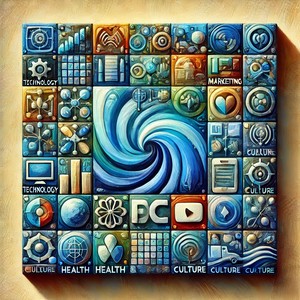0:00
Imagine standing at a crossroads where
0:03
every direction carries both reward and
0:05
consequence. What helps you choose the
0:08
path that feels right, not just logical.
0:11
That's where the four pillars of ethics
0:13
come in. Fundamental principles that
0:15
shape how we navigate life's hardest
0:18
questions. Autonomy, beneficence,
0:21
non-maleficence, and justice. These
0:24
aren't just abstract ideals. They're
0:26
real everyday tools. Autonomy respects
0:30
the right of individuals to make their
0:31
own choices in health, business, or
0:35
relationships. Honoring autonomy means
0:38
letting people lead their own lives even
0:41
when we disagree. Beneficence urges us
0:44
to do good, to act with kindness and
0:47
care. Whether it's offering a hand to
0:49
someone in need or improving policies
0:52
that impact communities, beneficence
0:55
reminds us that ethics is not passive.
0:58
It's actionoriented non-maleficence or
1:01
do no harm sounds simple but is often
1:04
the most complex. What if doing good for
1:07
one person inadvertently hurts another?
1:10
This pillar forces us to slow down and
1:13
weigh the ripple effects of our
1:14
decisions, considering long-term
1:17
outcomes over quick wins. Then there's
1:20
justice, the call for fairness,
1:22
equality, and integrity. In a world
1:25
where resources are limited and bias is
1:28
real, justice demands we look beyond
1:31
ourselves to the wider implications of
1:33
equity. It challenges us to question
1:36
systems and seek balance together. These
1:40
pillars don't give us answers. They
1:42
guide us toward them. They invite us to
1:44
reflect, discuss, and sometimes wrestle
1:48
with discomfort. And in doing so, they
1:51
reveal the kind of person we truly aim
1:53
to be. E.So. When was the last time you
1:56
leaned on ethics to make a tough call?

